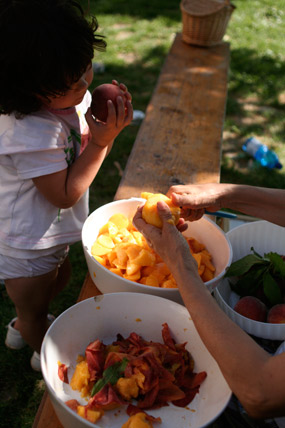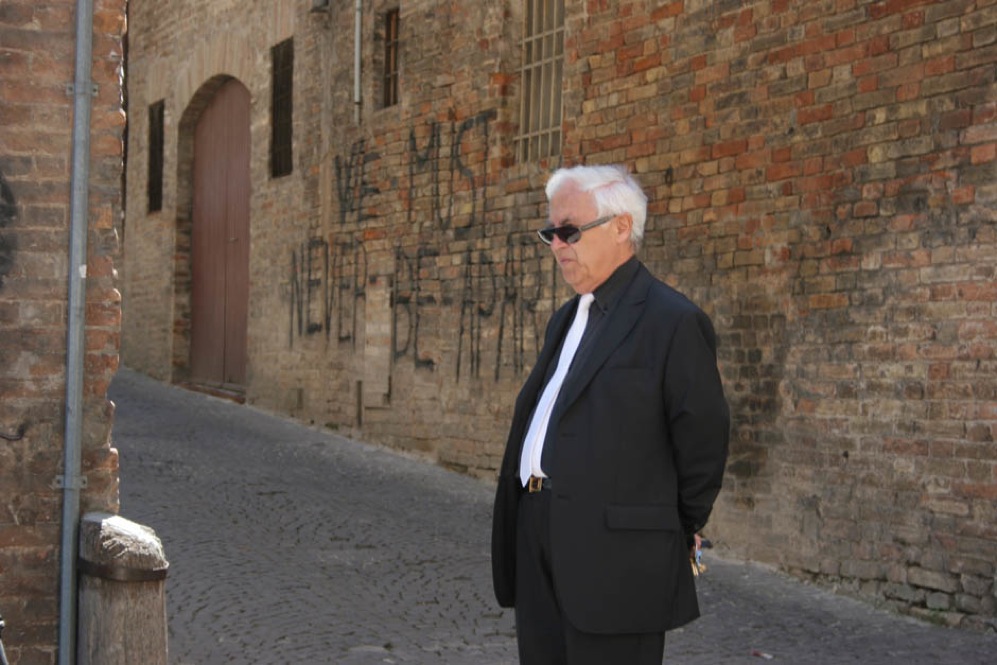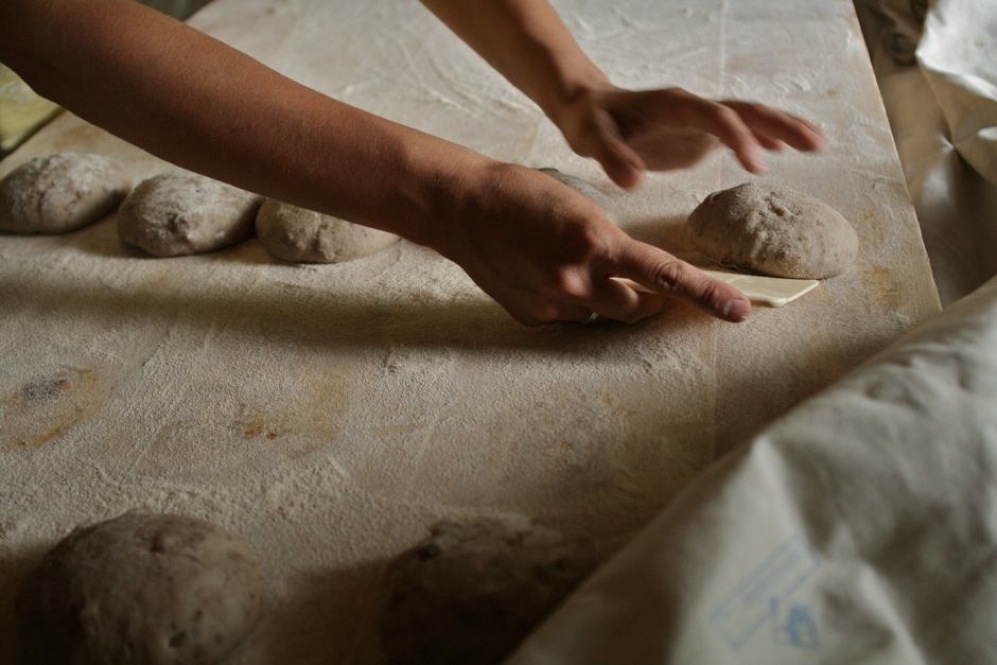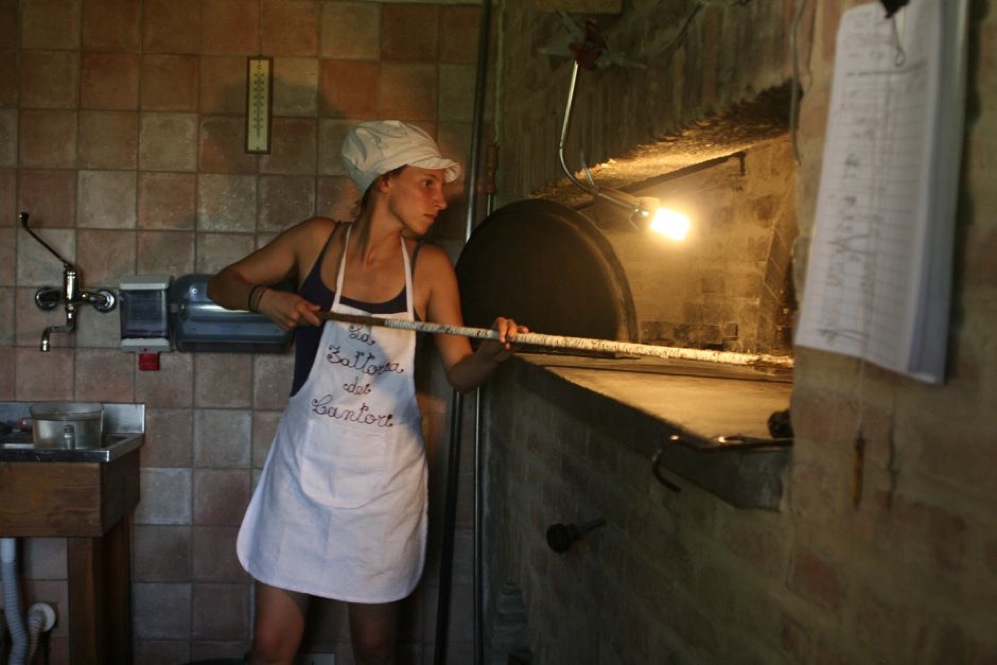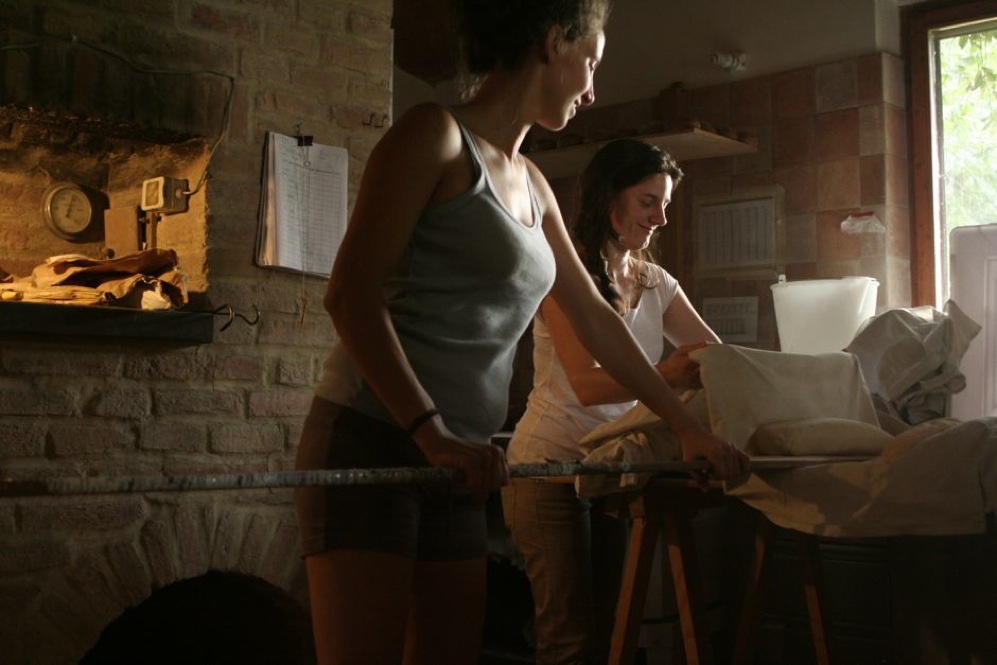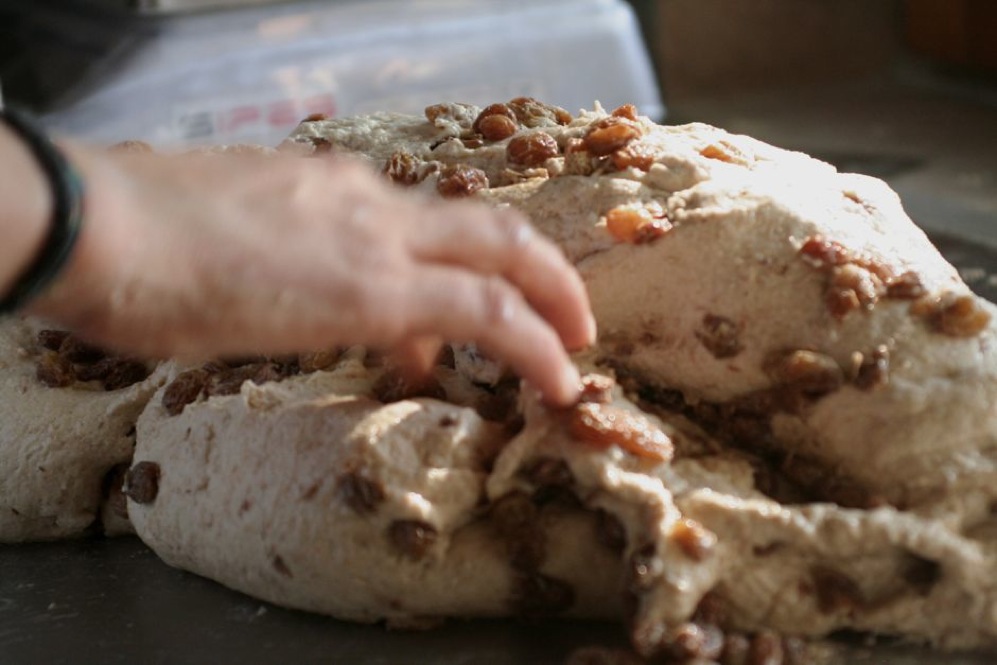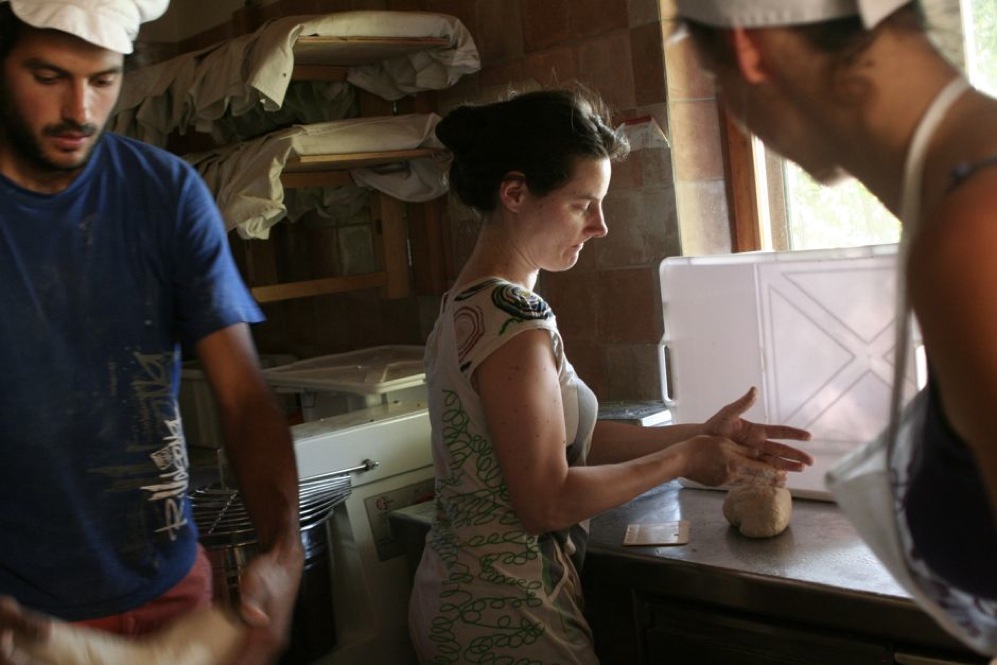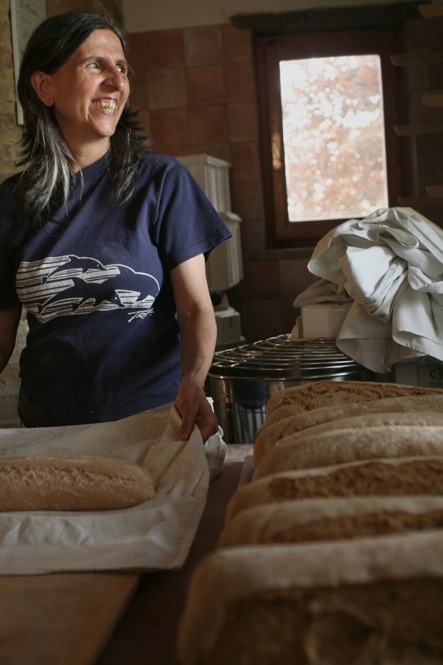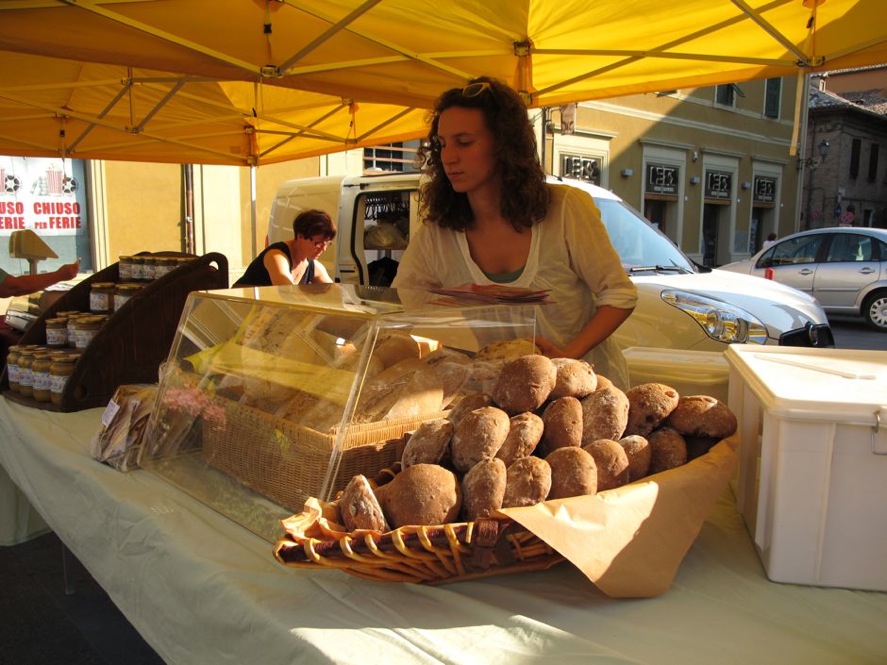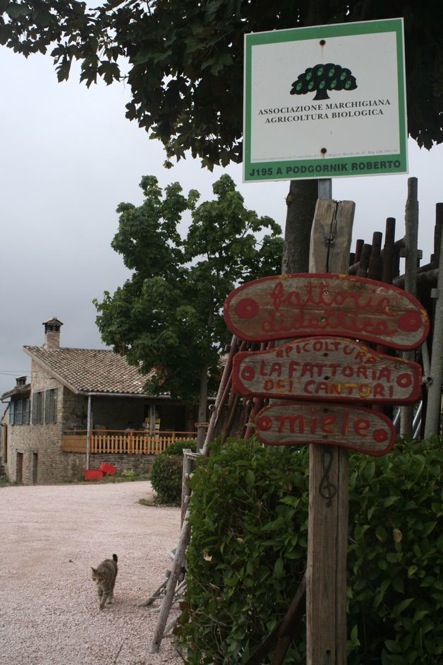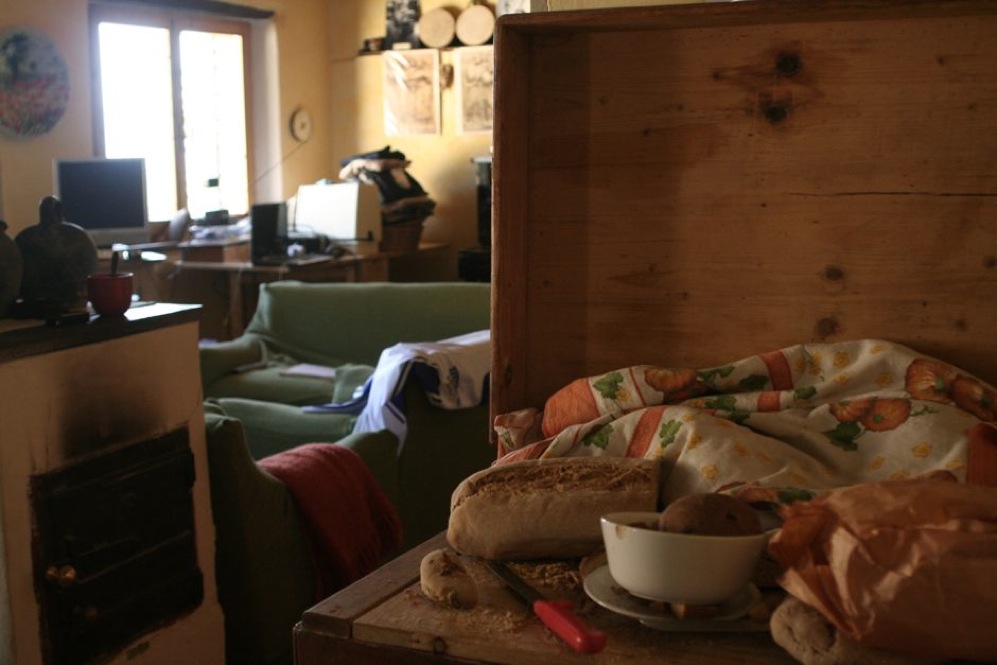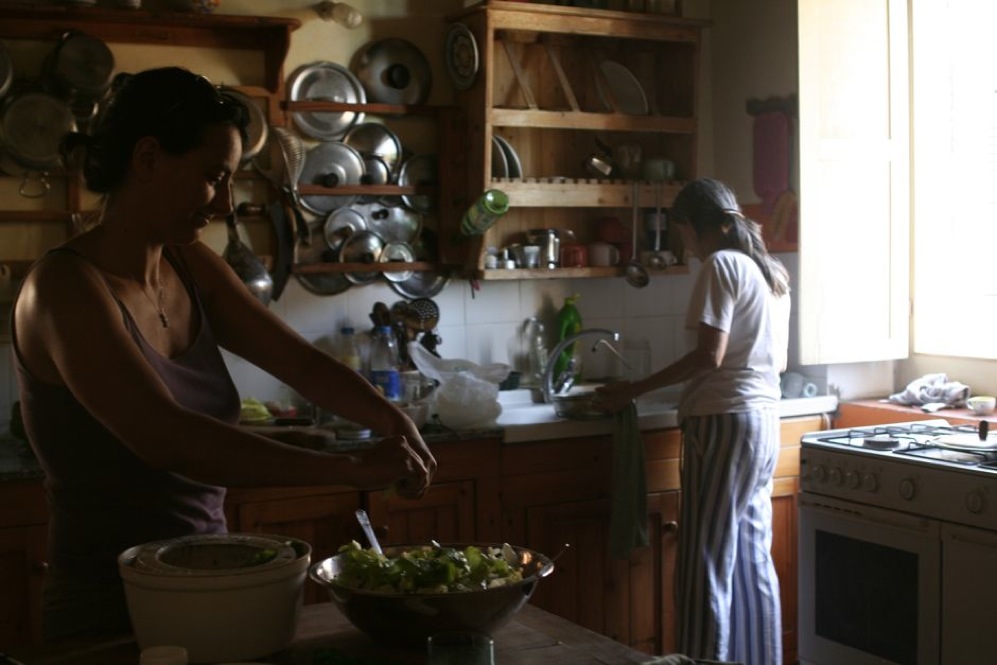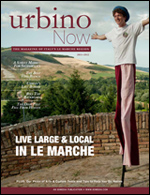URBINO, Italy – As important as food is, most of us know little about where it comes from.
A family of organic farmers outside this Renaissance city is trying to change that.
“Children think that when you take milk of the cow, it is cold, not hot, because they always take cold milk from the fridge,” says Monserrat Podgornik, the mother of the family. She believes children should understand that when a calf drinks milk, “it has to be hot in the natural way like your mama, no?”
Concerned about this disconnect in today’s culture, the Podgornik family has created La Fattoria Dei Cantori, or “The Farm of the Singers,” an eclectic 15-acre operation that is not just a producer of quality food and art, but a center of learning.
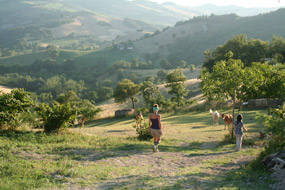
La Fattoria Dei Cantori has two cows to produce milk and cheese, as well as two donkeys and one horse.
Dedicated to what they call “a simple life” centered on the philosophy of spiritual leader Mohandas Gandhi, the farm teaches classes for children, hosts “WWOOFers” and holds a long list of activities not covered by the description “agriturism, beekeeping, farm classroom, and oven goods” in its brochure.
Roberto and Montserrat Podgornik began this farm 30 years ago with just one cow, a leaky old farmhouse, and a bicycle for transportation. Neither came from farming families, but were each deeply moved by books they read about Gandhi.
“When I was 19, I was looking for something important,” Monserrat says. After living in a farming community started by one of Gandhi’s disciples in France, her quest was over—she knew she wanted that simple life for herself.
Montserrat insists the decision to start La Fattoria Dei Cantori wasn’t courageous, but that she and her husband were simply “unconscious” of the magnitude of their task. A broken roof that made the house so cold a glass of water “became gelato” was just one of their earliest challenges. But by taking those challenges day by day, Montserrat says, they were able to overcome everything.
“You have to believe in what you are doing,” she says of the difficulties of organic farming.
They feel it is important to try to take part in the entire process of everything they produce. They were one of the first farms in the region to grow their own wheat as well as bake bread from the flour obtained.
“One of our favorite things is to teach the children, [because] we can change society from the beginning,” says Montserrat’s daughter Agnese, 24, who works on the farm full time.
Classes offered to children range from beekeeping to bookbinding to simply “walking in the woods.” To educate children on the origins of food and have them participate in the farm’s manual chores, the Podgorniks built a classroom separate from the house. There the children can safely observe bees through its large windows and take part in the bread making process.
The Podgorniks believe their “didactic farm” approach is increasingly important to teach children that, as Agnese said, “food doesn’t just come from the grocery store.”
The farm is a flurry of activity all day with the coming and going of family, friends and customers of all ages. “We never know how many plates to put on the table,” said Montserrat as she cut tomatoes for lunch.
Nobody comes to this farm without doing some work.
Nobody seems to come without being fed, but also, as Agnese said, “Nobody comes to this farm without doing some work,” such as packaging crackers for the market. The family believes that through this work, people gain valuable knowledge.
There is a nonstop rhythm of creation on the farm, whether a family brings empty bottles to fill with milk from the two cows or Agnese and her sister, Irene, working together in the oven room to bake three types of bread.
In the small, hot space, through clouds of flour, the sisters’ fingers work quickly and nimbly with the dough, graceful from years of practice. They work hard for hours at a time, pausing to wipe sweat from their brows and drink a glass of their homemade apple juice.
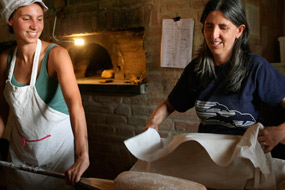
Montserrat, right, and her two daughters, Agnese, left, and Irene, not shown, do most of the bread making.
To run smoothly the farm depends on volunteers to help out with this hard labor, some from organizations like Worldwide Opportunities on Organic Farms (WWOOF).
“I know I want this way of life, but I don’t have the courage to begin,” said Serena Vegna, one of the two WWOOF volunteers. Vegna and her husband want to start their own small organic farm for her 3-year-old daughter to grow up on. Learning on La Fattoria Dei Cantori is a first step toward their demanding dream, the same one that Roberto and Montserrat had 30 years ago.
Today, La Fattoria Dei Cantori is one of many organic farms in the Urbino- Pesaro area. A co-op of 20 of these farms and local crafters banded together to sell their products directly to customers in Galleria Dell’Altra Economia in Urbino.
This shop is one of many methods these small farms must use to survive on the small amount of product they produce.
Renato Radici works at the shop’s storefront and acts as a spokesman for these local producers, chatting enthusiastically with customers while slicing fresh salami on an automatic blade.
It’s a hard fight against the big companies—they all have help from the government, but the little farms have a lot of difficulty.
“It’s a hard fight against the big companies—they all have help from the government, but the little farms have a lot of difficulty,” he said. He harped on these “big companies,” suggesting cheaply made food is partly to blame for health problems such as obesity, celiac disease, and digestion problems.
Radici is optimistic, though, because of the rising demand for organic, high quality food. “The big companies see that people like this, and they are afraid of the damage,” he said.
Evidently, Radici believes that even large-scale food companies are learning something from small farms like La Fattoria Dei Cantori, if simply, he mentions, to repackage their food with “greener” looking labels.
In response to this “hard fight,” Montserrat says she prefers the small-scale method of change through teaching others. “I want to fight against something of myself that I don’t like, but not against others,” she says. “Yes, those words are important, but the example is more important.”
Video
Slideshow
Click on Image to Show in Lightbox.
